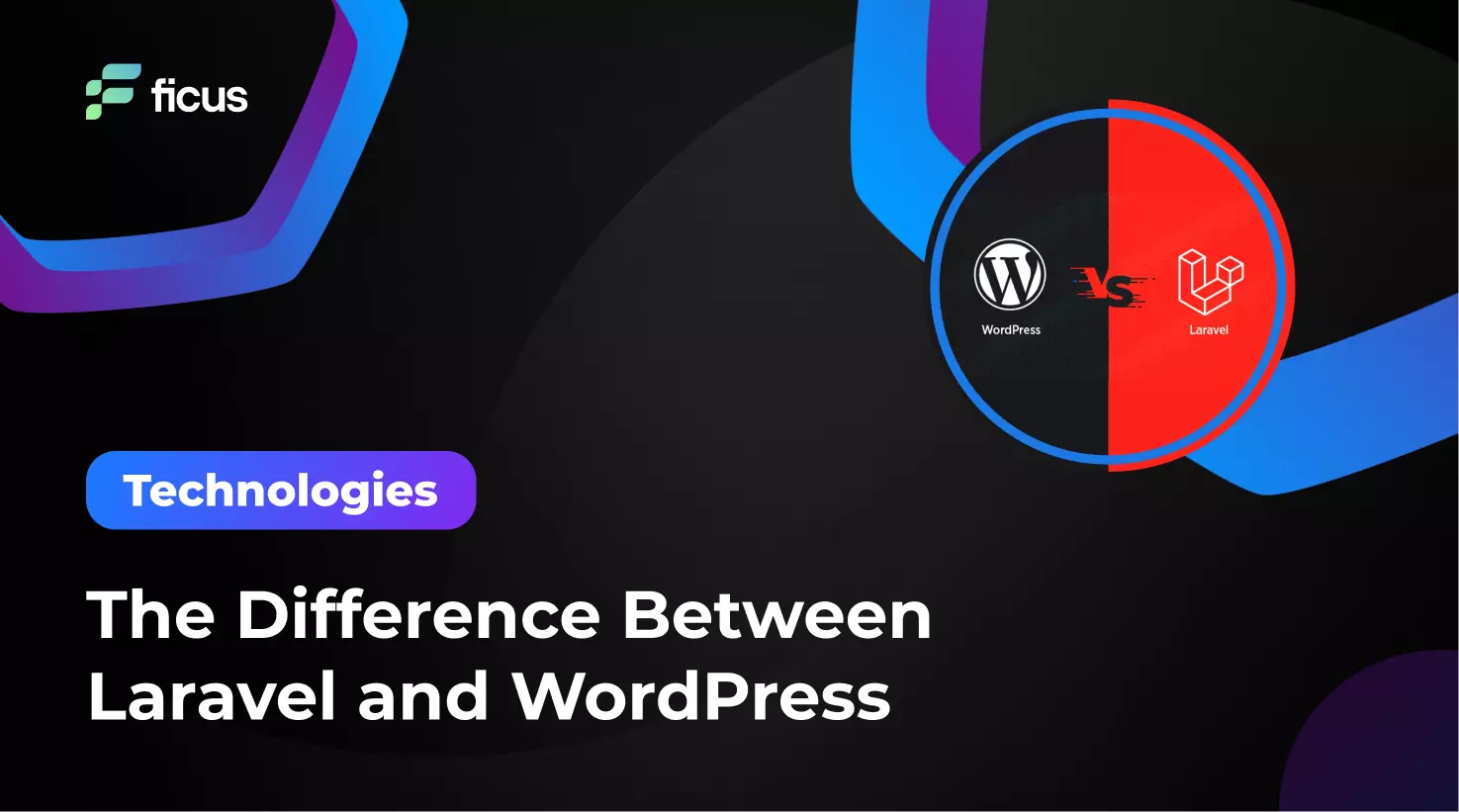Laravel and WordPress are standout options in web development, each accommodating different requirements. WordPress vs. Laravel speed highlights how both systems utilize PHP, yet their similarities end there. Developers seeking a flexible structure might prefer Laravel for its versatility and robust attributes, while company owners intending to enhance digital visibility might lean toward WordPress for its user-friendly user interface and extensive plugin ecosystem.
We’ll contrast customization choices, ease of use, safety, scalability, and extra. Whether you’re making a decision between Laravel vs. WordPress, which is better for your task, this article will offer the understanding needed to pick the right platform.
- WordPress excels in user-friendliness and extensive plugin availability.
- Laravel offers flexibility and scalability for complex web applications.
- Hybrid integration combines WordPress’s ease with Laravel’s robustness.
Laravel Architecture

Laravel Architecture adheres to the Model-View-Controller (MVC) pattern, splitting application reasoning right into 3 interconnected parts: models, views, and controllers. This structure boosts organization and maintainability. With integrated devices like Eloquent ORM for database management, Blade templating for dynamic views, and Artisan CLI for automation, Laravel improves development. The framework’s durable safety and security features, including CSRF defense and secure authentication, ensure more secure applications. In the WordPress vs. Laravel speed debate, Laravel’s architecture often results in faster, more efficient web applications, making it a strong choice for developers.
Key Features of Laravel
Laravel sticks out for its robust features that streamline and improve website development:
- Eloquent ORM enables developers to connect with databases using PHP, avoiding complex SQL and maintaining clean code.
- Blade Templating Engine allows mixing PHP code within websites, accelerating page development and debugging.
- Artisan Console automates repetitive jobs like database setup, saving considerable time.
- MVC Style Assistance separates data, screen, and control logic, making code management extra effective.
- Safety functions protect against hacking and spam, guaranteeing website safety and security.
- Testing and Debugging devices facilitate very easy application testing and concern resolution.
- The Routing System streamlines the management of customer navigation across different site pages.
- Task Scheduling and Management automate routine jobs, ensuring smooth website procedures.
In the WordPress vs. Laravel discussion, these features highlight Laravel’s suitability for projects requiring complex backend logic and customization. The contrast of Laravel vs. WordPress security underscores Laravel’s focus on robust, built-in protection mechanisms.
WordPress Architecture

WordPress, a widely used platform, stands out in creating diverse websites, from blogs to online stores. Unlike Laravel, WordPress supplies an easy-to-use user interface that is accessible to beginners and experts. Its extensive plugin ecosystem enhances flexibility, allowing users to add features like forms, SEO tools, and e-commerce functionality. Themes in WordPress use thousands of design options, conveniently personalized to match your site’s aesthetic. At its core, WordPress uses PHP and MySQL, with regular updates to ensure safety, security, and functionality. Widgets and menus simplify content management. In the WordPress vs. Laravel debate, WordPress shines for those seeking an easy, customizable website solution backed by a supportive community.
Key Features of WordPress
WordPress masters internet site development with several standout features:
- Ease of Use: Adding web pages, articles, and themes is simple, even for those without technical skills.
- Themes and Customization: Various complimentary and paid themes allow you to customize your site’s look to match your style.
- Plugins for Extensive Performance: Improve your site with SEO plugins, contact forms, or online shops, expanding its capabilities.
- SEO-Friendly: Integrated features and plugins, such as Yoast search engine optimization, help your content rank higher in online search engines.
- Receptive and Mobile-Friendly: Ensures your website looks great on any tool, boosting user experience.
- Routine Updates and Improvements: Constant updates enhance safety and include brand-new functions.
- Large Community and Support: Extensive community support through forums, tutorials, and guides.
- Multilingual and Accessible: Sustains numerous languages, making it appropriate for a global audience.
In the WordPress vs. Laravel argument, WordPress is preferred by users seeking convenience and extensive customization options. Laravel vs. WordPress security highlights WordPress’s continual updates for content-focused websites and ensures durable site protection.
WordPress is a powerful content management system that democratizes web publishing, enabling users of all skill levels to create and manage beautiful websites with ease. Its vast ecosystem of themes and plugins makes it versatile and customizable for nearly any type of online presence.
Matt Mullenweg
A Close Comparison of WordPress and Laravel
To make an informed decision between WordPress and Laravel, it’s necessary to understand their strengths and weaknesses in various aspects. This comparison covers key areas such as availability, SEO, online shopping, themes, safety, flexibility, speed, and cost. Each section provides insights into how these platforms perform and what makes them suitable for different project needs.
Availability
WordPress and Laravel are both open-source and widely offered, satisfying various user demands. WordPress offers a vast repository of themes and plugins, permitting quick setup and customization with marginal technical expertise. Laravel, while also free, calls for more technical knowledge for installation and configuration. For programmers comparing Laravel vs. WordPress, which is better, WordPress gives an out-of-the-box option for content-heavy sites, whereas Laravel offers flexibility for custom application development. This availability difference often guides users based on their project complexity and technical skills.
SEO
When contrasting WordPress vs. Laravel for search engine optimization, WordPress attracts attention with countless plugins like Yoast SEO that simplify on-page optimization and meta management. Its user-friendly user interface allows for very easy SEO adjustments without coding. On the other hand, WordPress and Laravel differ significantly here; Laravel requires manual implementation of search engine optimization ideal methods, providing developers with much more control but requiring more effort. This makes WordPress better for individuals who concentrate on search engine optimization without deep technical participation, while Laravel suits those seeking customized SEO solutions.
Online shopping
The WooCommerce plugin is a great fit for WordPress online stores, allowing users to create e-commerce stores easily and quickly. WooCommerce offers product management, payment gateways, and inventory tracking features, making it ideal for small and medium-sized businesses. However, Laravel provides unparalleled flexibility for businesses that require highly customized solutions. Developers can create custom e-commerce platforms tailored to business needs, offering advanced functionality and scalability. While WordPress stands out for its simplicity and rapid deployment, Laravel meets complex requirements by providing a unique and robust online shopping experience that can grow with the business. This comparison emphasizes the strengths of WordPress vs. Laravel in the e-commerce space.
Theme
WordPress offers a wide range of themes that allow users to quickly change the look and feel of their sites without coding. This makes it ideal for those who want an attractive website with minimal effort. In contrast, Laravel uses Blade templates to create themes, which requires more coding but allows for greater customization. Comparing WordPress vs. Laravel themes, we can say that WordPress is user-friendly and quick to implement, while Laravel offers developers the flexibility to create unique designs. This difference makes WordPress suitable for users who need quick and easy changes, while Laravel is ideal for those who are looking for an individual, highly personalized website appearance.
Safety
When it comes to safety, WordPress greatly depends on plugins and routine updates to preserve safety. Users need to be diligent in updating themes, plugins, and the core software to prevent vulnerabilities. In contrast, Laravel deals with built-in security features like CSRF protection, file encryption, and protected password hashing, providing robust safety and security out of the package. Comparing Laravel vs. WordPress, which is better for security, Laravel tends to use advanced, incorporated protection measures, whereas WordPress requires recurring monitoring to ensure a safe and secure environment. This makes Laravel more suitable for programmers focusing on strong, integrated safety and security functions in their internet applications.
Flexibility
In terms of flexibility, Laravel offers developers a lot of control over their projects. Its modular structure and extensive libraries allow for highly customized applications. Although WordPress has extensive customization options with themes and plugins, it does not match Laravel’s level of flexibility for custom development. Comparing WordPress vs. Laravel, Laravel is suitable for projects that require complex, customized functionality, while WordPress is ideal for users looking for a wide range of ready-made solutions. This flexibility makes Laravel a better choice for developers who need to create unique, complex applications, while WordPress remains popular among those who want easier customization with extensive plugin support.
Speed
When comparing WordPress vs. Laravel in terms of speed, Laravel typically surpasses as a result of its optimized framework and reliable code structure. Laravel uses advanced caching mechanisms and database optimization, resulting in faster load times for complex applications. WordPress, while robust, can experience slower rates otherwise enhanced correctly, specifically with numerous plugins. However, WordPress can attain respectable rates with appropriate monitoring and caching plugins. For developers concentrating on performance, WordPress and Laravel both offer solutions, but Laravel’s framework is naturally extra performance-oriented, making it suitable for applications where rate is a critical factor.
Reduction of Cost
When it comes to cost reduction, WordPress usually offers a more affordable solution thanks to its wide range of free themes and plugins. Creating and maintaining a WordPress site often requires less financial investment, especially for small and medium-sized projects. In contrast, Laravel, while free to use, usually requires higher development costs because it requires specialized coding and skilled developers. Comparing WordPress vs. Laravel, WordPress is cost-effective for users looking for quick and budget-friendly solutions, while Laravel is better suited for businesses looking to invest in customized, scalable solutions. This makes WordPress attractive for cost-effective projects, while Laravel is ideal for those who prefer custom features.
Discover the perfect match for your project—WordPress or Laravel <br>
Contact UsWordPress and Laravel Similarities
WordPress and Laravel are free and open-source web technologies based on PHP that offer fast, flexible, and pragmatic solutions. They work based on an object-oriented structure, which promotes simplicity and scalability. Additionally, both platforms have supportive online communities that help developers navigate the complexities. While WordPress uses a theme-based structure with a plugin architecture of over 57,000 plugins, Laravel provides customizable features, packages, and reusable PHP libraries. This flexibility allows you to create customized solutions for different project requirements. In WordPress and Laravel development, the ability to customize everything ensures adaptability, allowing users to create websites according to their specific needs and preferences.
WordPress and Laravel Differences
WordPress and Laravel, both prominent in web development, exhibit distinct differences. While WordPress powers over 38% of websites globally, Laravel has gained traction for web app development. WordPress, a PHP-based CMS, suits users with limited development experience, offering a simpler learning curve than Laravel. WordPress vs. Laravel disparity lies in database management; Laravel facilitates easier queries and migrations. WordPress heavily relies on plugins, potentially compromising speed, whereas Laravel integrates essential functionalities like validation and authorization. Security-wise, Laravel excels with built-in measures against XSS and CSRF attacks. WordPress shines for content updates, while Laravel thrives in custom design and data management.
When To Use WordPress
Utilize WordPress for various purposes: crafting SEO-friendly business sites, integrating social networks into online portfolios, presenting professional or personal content, managing blogs or news portals, and establishing mid-size e-commerce platforms. Customizing themes or creating new ones from scratch enhances flexibility. WooCommerce, tailored for e-commerce, integrates seamlessly. WordPress Codex serves as a comprehensive documentation resource for development. Its user-friendly interface expedites website creation. Whether building responsive business sites or dynamic blogs, WordPress offers speed and efficiency. Embrace its versatility for rapid, optimized, and high-performing website development.
When To Use Laravel
Opt for Laravel when tackling intricate web projects requiring custom solutions and extensive documentation. Introduced in 2011, Laravel prioritizes simplifying complex tasks through its intuitive syntax. Ideal for dynamic websites, membership platforms, and large-scale e-commerce ventures, it handles substantial data volumes. Its integrated unit-testing feature enhances app stability, while its pragmatic MVC pattern boosts development efficiency. Dive into Laravel’s documentation on its website to kickstart your project confidently. With Laravel, navigate through intricate requirements seamlessly, empowering Laravel developers to build robust web applications efficiently.
Is a Laravel-WordPress Hybrid Possible?
Combining Laravel with WordPress is feasible, allowing for backend management via WordPress and frontend control through Laravel. The integration is assisted by Corcel, a collection of PHP classes leveraging Laravel’s Eloquent technique to bring data from WordPress data sources. This strategy caters to developers seeking to harness WordPress’s CMS capabilities and Laravel’s advanced capabilities. Such integration provides a beneficial option for handling intricate jobs within Laravel while leveraging WordPress’s easy-to-use backend interface. In WordPress and Laravel, this hybrid approach uses a versatile option, mixing the strengths of both systems to satisfy varied project requirements.
Laravel vs. WordPress – The Better Option in 2024
Picking between WordPress and Laravel depends on your specific needs and goals. Laravel master building tailored web applications, flaunting versatility, scalability, and a developer-centric ecosystem. On the other hand, WordPress offers user-friendly material management and considerable theme/plugin choices, which are ideal for rapid online presence setup favored by individuals and small businesses. Assess your project requirements, development proficiency, and long-term vision. With proven track records, both platforms empower users to create impactful online experiences. Therefore, picking WordPress and Laravel that align with your purposes ensures you can leverage their robust features for successful web development endeavors.
Final Words
To conclude, the disparity between WordPress and Laravel hinges on their suitability for distinct task kinds. WordPress masters craft web presentations, blogs, and small to medium-sized online stores, while Laravel is optimal for extensive e-commerce platforms, complex web applications, and intricate backend systems. Moreover, a fusion of WordPress and Laravel is feasible, satisfying proficient PHP developers seeking a blend of WordPress knowledge and Laravel’s streamlined workflow.
Ficus Technologies offers expert consultation and development services tailored to harness the strengths of both WordPress and Laravel, ensuring optimal solutions aligned with project requirements and objectives.
The superiority of Laravel over WordPress depends on the specific requirements of a project. Laravel excels in building complex, custom web applications, offering extensive flexibility and scalability, particularly for developers adept at PHP frameworks. Conversely, WordPress shines in its user-friendly interface and vast ecosystem of themes and plugins, making it ideal for simpler websites, blogs, and small to medium-sized online stores. Ultimately, the choice between Laravel and WordPress hinges on factors like project complexity, development expertise, and long-term scalability needs rather than one platform being inherently u0022betteru0022 than the other.u003cbru003e
Yes, WordPress is generally more user-friendly than Laravel. WordPress offers a straightforward interface tailored for content management, making it accessible to users with minimal technical expertise. Its extensive library of themes and plugins further simplifies website customization. On the other hand, Laravel, a PHP framework, requires more technical proficiency and is typically preferred by developers to build custom web applications rather than content-focused websites. While Laravel offers greater flexibility and control, WordPress’s intuitive interface and extensive community support make it more user-friendly for non-technical users seeking to create and manage websites efficiently.








